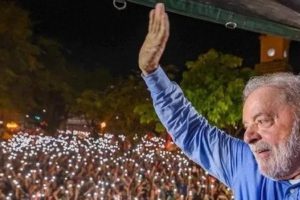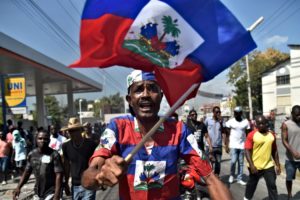Negotiations to form a far-right coalition are still ongoing, but there can be no hiding Netanyahu’s victory. Moshé Machover locates the drift to the right in the Zionist project itself.


Negotiations to form a far-right coalition are still ongoing, but there can be no hiding Netanyahu’s victory. Moshé Machover locates the drift to the right in the Zionist project itself.

On the evening of November 22, armed police stormed Vargas’ house, arrested him, and took him to an undisclosed prison. Vargas is a public and well-known critic of the personalist dictatorship of Nicaraguan president Daniel Ortega and his wife Rosario Murillo

The Iranian football team refused to sing their national anthem before their opening match at the FIFA World Cup in Qatar on November 21, in solidarity with mass protests that have followed the murder of 22-year-old Mahsa Amini while in police custody—for not wearing her hijab “appropriately”.

The opportunity for building a mass movement across the working class and wider society is clearly upon us. However, the left needs to develop a coherent strategy for uniting the disparate forces and growing numbers of workers entering the struggle.

Australia may be far from the US Air Force’s target—China—but that is why the bombers will be stationed here.

The results of the U.S. midterm election broke a well-established historical pattern of the “out” party scoring a victory over the president’s party. In the process, the results made fools of the right-wing politicians and pundits who had proclaimed that a “red wave” would wipe out the Democrats and, possibly, put President Biden on the road to impeachment.

It would be better if the Jews of the world didn’t support Israel blindly and that U.S. politicians were freed from reflexive support. It has corrupted Israel and taught it that it can cause as much harm as it wishes without taking responsibility and at no cost.

We won’t control or reverse (if that’s still possible) greenhouse gas emissions and rising global temperatures in a capitalist world economy that supports and finances the fossil fuel industry.

Keeping fighting, creating the conditions allowing for the construction of a movement for a general strike that would unite public and private workers, here is what’s on the table.

Trump knew he lost the 2020 election, but he continued to propagate the Big Lie anyway. But the challenges to the election were only a part of a multi-pronged strategy to stop the congressional certification of Biden’s election, and to keep himself in power by hook or by crook.

This brief note on the current situation in the lead-up to the October 30 Brazilian elections is written by the socialist Valerio Arcary, a member of Resistencia, a current inside the Party of Socialism and Freedom (PSOL).

We, like so many others, mourn Mike Davis’ death and celebrate his enormous political contributions over many decades.

With four prime ministers in six years and four chancellors of the Exchequer (treasurers) in four months, a massive polling deficit against Labour and the party’s business backers in open revolt, the Conservatives are in crisis.

We publish a translation of a report by Jackson Jean from Haiti, where a social crisis is fueling a clamor from the Haitian elite and from the “international community” for another invasion of the country.

In this article, originally published in the Uruguayan newspaper Brecha, and republished in Correspondencia de Prensa, the Uruguayan socialist journalist Raúl Zibechi argues that Bolsonaro’s strong second-place finish in the recent Brazilian presidential election showed that the far right is deeply rooted in Brazilian society, even if it may not defeat Lula in the October 30 presidential runoff.